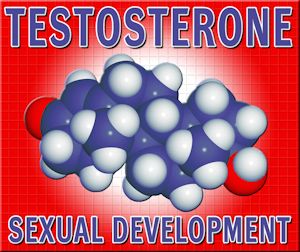Introduction to Natesto
Natesto is a testosterone nasal gel approved by the FDA for the treatment of hypogonadism in men, a condition characterized by low testosterone levels. As a relatively new form of testosterone replacement therapy (TRT), Natesto offers a unique delivery method that avoids the liver, potentially reducing the risk of liver-related side effects associated with oral testosterone formulations. However, as with any medication, it's crucial to understand its impact on various bodily systems, including the kidneys.
Understanding Kidney Health
The kidneys play a vital role in maintaining overall health by filtering waste and excess fluids from the blood, regulating electrolytes, and producing hormones that control blood pressure and stimulate red blood cell production. Kidney function can be influenced by various factors, including medications, diet, and underlying health conditions. For American men considering TRT, it's essential to evaluate the potential effects of Natesto on kidney health.
Natesto and Kidney Function
Research on the specific impact of Natesto on kidney function is limited, as it is a newer form of TRT. However, testosterone in general has been associated with changes in kidney function. Some studies suggest that testosterone may have a protective effect on the kidneys, potentially reducing the risk of chronic kidney disease (CKD) in men with low testosterone levels. Conversely, other research indicates that high doses of testosterone could lead to kidney damage or exacerbate existing kidney conditions.
Monitoring Kidney Health While Using Natesto
For American men prescribed Natesto, regular monitoring of kidney function is crucial. This typically involves blood tests to measure serum creatinine levels and calculate the estimated glomerular filtration rate (eGFR), which are standard indicators of kidney function. Men with pre-existing kidney conditions or risk factors for kidney disease should be particularly vigilant and maintain open communication with their healthcare providers.
Potential Risks and Considerations
While Natesto bypasses the liver, its impact on the kidneys remains a consideration. Men with a history of kidney disease or those at higher risk, such as those with diabetes or hypertension, should discuss the potential risks and benefits of Natesto with their healthcare provider. It's also important to consider other factors that may affect kidney health, such as diet, hydration, and the use of other medications.
Lifestyle Factors and Kidney Health
In addition to monitoring the direct effects of Natesto on kidney function, American men should focus on lifestyle factors that support kidney health. Maintaining a balanced diet low in sodium and processed foods, staying hydrated, engaging in regular physical activity, and avoiding smoking and excessive alcohol consumption can all contribute to optimal kidney function.
Conclusion: Balancing TRT and Kidney Health
For American men considering or currently using Natesto for testosterone replacement therapy, understanding its potential impact on kidney health is essential. While research specific to Natesto and kidney function is limited, general knowledge about testosterone's effects on the kidneys can guide informed decision-making. Regular monitoring, open communication with healthcare providers, and a focus on overall health and lifestyle can help men balance the benefits of TRT with the need to maintain optimal kidney function.
In conclusion, while Natesto offers a promising option for men with hypogonadism, it's crucial to approach its use with a comprehensive understanding of its potential effects on the body, including the kidneys. By staying informed and proactive, American men can make the best decisions for their health and well-being.
Contact Us Today For A Free Consultation

- Natesto Nasal Gel: Enhancing Cognitive Function in American Males with Testosterone Therapy [Last Updated On: March 17th, 2025] [Originally Added On: March 17th, 2025]
- Natesto: Enhancing Sleep Quality and Testosterone Levels in American Men [Last Updated On: March 18th, 2025] [Originally Added On: March 18th, 2025]
- Natesto: Enhancing Energy and Combating Fatigue in Men with Hypogonadism [Last Updated On: March 18th, 2025] [Originally Added On: March 18th, 2025]
- Natesto: Effective Testosterone Therapy for Aging American Men's Health and Well-being [Last Updated On: March 19th, 2025] [Originally Added On: March 19th, 2025]
- Natesto: Enhancing Weight Management in American Men with Low Testosterone [Last Updated On: March 20th, 2025] [Originally Added On: March 20th, 2025]
- Natesto: Monitoring Essential for Safe Testosterone Therapy in American Men [Last Updated On: March 21st, 2025] [Originally Added On: March 21st, 2025]
- Natesto: A Skin-Friendly Testosterone Therapy for American Men [Last Updated On: March 21st, 2025] [Originally Added On: March 21st, 2025]
- Natesto: Enhancing Athletic Performance in American Male Athletes Through Nasal Testosterone Therapy [Last Updated On: March 21st, 2025] [Originally Added On: March 21st, 2025]
- Natesto vs. Traditional Gels: A Guide to Testosterone Replacement Therapy Options [Last Updated On: March 21st, 2025] [Originally Added On: March 21st, 2025]
- Natesto: Revolutionizing Testosterone Therapy with Nasal Gel in American Men [Last Updated On: March 21st, 2025] [Originally Added On: March 21st, 2025]
- Natesto: A Novel Testosterone Therapy and Its Impact on Prostate Health in Men [Last Updated On: March 22nd, 2025] [Originally Added On: March 22nd, 2025]
- Tailoring Natesto Dosage for Optimal Testosterone Therapy in American Men [Last Updated On: March 22nd, 2025] [Originally Added On: March 22nd, 2025]
- Natesto: A Convenient Nasal Gel for Low Testosterone in American Men [Last Updated On: March 22nd, 2025] [Originally Added On: March 22nd, 2025]
- Natesto: Revolutionizing Testosterone Therapy and Reducing Stigma in American Men [Last Updated On: March 22nd, 2025] [Originally Added On: March 22nd, 2025]
- Natesto: Revolutionizing Testosterone Therapy with Intranasal Delivery for American Men [Last Updated On: March 22nd, 2025] [Originally Added On: March 22nd, 2025]
- Natesto: A Breakthrough in Hypogonadism Treatment for American Men [Last Updated On: March 22nd, 2025] [Originally Added On: March 22nd, 2025]
- Natesto's Impact on Blood Sugar Levels in Diabetic American Men: A Comprehensive Analysis [Last Updated On: March 23rd, 2025] [Originally Added On: March 23rd, 2025]
- Natesto: Enhancing Emotional Well-being in American Men with Hypogonadism [Last Updated On: March 23rd, 2025] [Originally Added On: March 23rd, 2025]
- Natesto: Testosterone Therapy's Impact on Cardiovascular Health in American Males [Last Updated On: March 23rd, 2025] [Originally Added On: March 23rd, 2025]
- Natesto: Convenient Nasal Gel for Hypogonadism Treatment in American Men [Last Updated On: March 23rd, 2025] [Originally Added On: March 23rd, 2025]
- Natesto: Enhancing Joint Health and Mobility in American Men with Testosterone Therapy [Last Updated On: March 24th, 2025] [Originally Added On: March 24th, 2025]
- Natesto: Nasal Gel Boosts Libido in Men with Low Testosterone [Last Updated On: March 24th, 2025] [Originally Added On: March 24th, 2025]
- Natesto: Innovative Nasal Gel for Testosterone Replacement in American Men [Last Updated On: March 24th, 2025] [Originally Added On: March 24th, 2025]
- Natesto: Non-Invasive Nasal Gel for Testosterone Replacement in American Men [Last Updated On: March 24th, 2025] [Originally Added On: March 24th, 2025]
- Natesto's Impact on Vision: Risks and Monitoring for American Men [Last Updated On: March 25th, 2025] [Originally Added On: March 25th, 2025]
- Natesto: A Promising Nasal Gel for Chronic Fatigue in Men with Low Testosterone [Last Updated On: March 25th, 2025] [Originally Added On: March 25th, 2025]
- Natesto: Advancing Men's Health with Nasal Testosterone Therapy in America [Last Updated On: March 25th, 2025] [Originally Added On: March 25th, 2025]
- Natesto: A Convenient, Effective Nasal Gel for American Men's Testosterone Deficiency [Last Updated On: March 25th, 2025] [Originally Added On: March 25th, 2025]
- Natesto: Enhancing Mental Clarity and Cognitive Function in American Men [Last Updated On: March 26th, 2025] [Originally Added On: March 26th, 2025]
- Maximizing Natesto Benefits: Diet, Exercise, and Lifestyle for American Men [Last Updated On: March 26th, 2025] [Originally Added On: March 26th, 2025]
- Natesto: Enhancing Vitality in American Men with Nasal Testosterone Gel [Last Updated On: March 26th, 2025] [Originally Added On: March 26th, 2025]
- Natesto: Enhancing Stress Management for American Men in High-Pressure Environments [Last Updated On: March 26th, 2025] [Originally Added On: March 26th, 2025]
- Natesto: Boosting Confidence and Self-Esteem in American Men with Low Testosterone [Last Updated On: March 26th, 2025] [Originally Added On: March 26th, 2025]
- Natesto: FDA-Approved Nasal Gel for Treating Male Hypogonadism [Last Updated On: March 26th, 2025] [Originally Added On: March 26th, 2025]
- Natesto: Safe Nasal Testosterone Therapy for Hypogonadism in American Men [Last Updated On: March 26th, 2025] [Originally Added On: March 26th, 2025]
- Natesto: Innovative Nasal Gel for Testosterone Deficiency in American Men [Last Updated On: March 26th, 2025] [Originally Added On: March 26th, 2025]
- Natesto: Enhancing Physical Strength in American Males with Hypogonadism [Last Updated On: March 26th, 2025] [Originally Added On: March 26th, 2025]
- Natesto: Innovative Nasal Gel for Testosterone Deficiency in American Men [Last Updated On: March 26th, 2025] [Originally Added On: March 26th, 2025]
- Natesto: Revolutionizing Testosterone Therapy for Aging American Males [Last Updated On: March 27th, 2025] [Originally Added On: March 27th, 2025]
- Natesto: Testosterone Therapy and Its Impact on Male Hair Loss in American Men [Last Updated On: March 27th, 2025] [Originally Added On: March 27th, 2025]
- Natesto: Transforming Lives of American Men with Low Testosterone [Last Updated On: March 27th, 2025] [Originally Added On: March 27th, 2025]
- Natesto: Enhancing Vitality and Performance in American Males with Testosterone Therapy [Last Updated On: March 27th, 2025] [Originally Added On: March 27th, 2025]
- Natesto: Enhancing Preventive Health in American Males with Nasal Testosterone Therapy [Last Updated On: March 28th, 2025] [Originally Added On: March 28th, 2025]
- Natesto: Nasal Testosterone Gel Reduces Skin Sensitivity in Men [Last Updated On: March 28th, 2025] [Originally Added On: March 28th, 2025]
- Natesto: Enhancing Immune Health in American Men Through Intranasal Testosterone Therapy [Last Updated On: March 28th, 2025] [Originally Added On: March 28th, 2025]
- Natesto: Nasal Testosterone Gel's Impact on Liver Function in American Men [Last Updated On: March 28th, 2025] [Originally Added On: March 28th, 2025]
- Natesto: A Novel Treatment for Sleep Apnea in Men with Low Testosterone [Last Updated On: March 28th, 2025] [Originally Added On: March 28th, 2025]
- Natesto: Innovative Nasal Gel for American Men's Low Testosterone Treatment [Last Updated On: March 29th, 2025] [Originally Added On: March 29th, 2025]
- Natesto: Testosterone Gel's Impact on Gut Health in American Males [Last Updated On: March 29th, 2025] [Originally Added On: March 29th, 2025]
- Natesto: Revolutionary Nasal Gel for Testosterone Replacement in American Men [Last Updated On: March 30th, 2025] [Originally Added On: March 30th, 2025]
- Natesto: Managing Side Effects and Benefits for Low Testosterone Treatment [Last Updated On: March 31st, 2025] [Originally Added On: March 31st, 2025]
- Natesto: Enhancing Recovery and Health in American Men with Testosterone Therapy [Last Updated On: April 1st, 2025] [Originally Added On: April 1st, 2025]
- Natesto: Managing Dental Health Impacts from Testosterone Nasal Gel Therapy [Last Updated On: April 1st, 2025] [Originally Added On: April 1st, 2025]
- Natesto: Nasal Testosterone Gel for Male Hypogonadism and Allergic Reaction Risks [Last Updated On: April 3rd, 2025] [Originally Added On: April 3rd, 2025]
- Natesto: Enhancing Mental Health and Well-being in American Men with Testosterone Deficiency [Last Updated On: April 7th, 2025] [Originally Added On: April 7th, 2025]
- Natesto: Enhancing Endurance and Stamina in American Men with Low Testosterone [Last Updated On: April 7th, 2025] [Originally Added On: April 7th, 2025]
- Natesto: Impact on Blood Pressure in American Men Using Nasal Testosterone Therapy [Last Updated On: April 7th, 2025] [Originally Added On: April 7th, 2025]
- Natesto's Effects on Cholesterol and Heart Health in American Males [Last Updated On: April 8th, 2025] [Originally Added On: April 8th, 2025]
- Natesto: Effective Intranasal Testosterone Therapy for American Men with Hypogonadism [Last Updated On: April 8th, 2025] [Originally Added On: April 8th, 2025]
- Natesto: Intranasal Testosterone Therapy for American Males - Dosage, Timing, and Lifestyle [Last Updated On: April 9th, 2025] [Originally Added On: April 9th, 2025]
- Natesto's Impact on Thyroid Function: Considerations for American Men [Last Updated On: April 11th, 2025] [Originally Added On: April 11th, 2025]
- Natesto: Managing Testosterone and Digestive Health in American Men [Last Updated On: April 13th, 2025] [Originally Added On: April 13th, 2025]
- Natesto: Enhancing Immune Health in American Males Through Testosterone Therapy [Last Updated On: April 13th, 2025] [Originally Added On: April 13th, 2025]
- Natesto: Testosterone Therapy's Impact on Hearing Health in American Men [Last Updated On: April 13th, 2025] [Originally Added On: April 13th, 2025]
- Natesto: FDA-Approved Nasal Gel for Testosterone Replacement in Men [Last Updated On: April 14th, 2025] [Originally Added On: April 14th, 2025]
- Natesto: Testosterone Therapy's Impact on Vision Health in American Males [Last Updated On: April 14th, 2025] [Originally Added On: April 14th, 2025]
- Natesto: Risks, Precautions, and Managing Blood Clot Risks in American Males [Last Updated On: April 15th, 2025] [Originally Added On: April 15th, 2025]
- Natesto: Enhancing Skin Health and Slowing Aging in American Men [Last Updated On: April 15th, 2025] [Originally Added On: April 15th, 2025]
- Natesto: Enhancing Mood and Emotional Stability in Men with Testosterone Deficiency [Last Updated On: April 15th, 2025] [Originally Added On: April 15th, 2025]
- Natesto: Long-Term Benefits and Considerations for Testosterone Deficiency Treatment in Men [Last Updated On: April 16th, 2025] [Originally Added On: April 16th, 2025]
- Natesto: Enhancing Muscle Recovery and Growth in American Men [Last Updated On: April 16th, 2025] [Originally Added On: April 16th, 2025]
- Natesto: Nasal Testosterone Gel's Impact on Hair Growth in Hypogonadal Men [Last Updated On: April 16th, 2025] [Originally Added On: April 16th, 2025]
- Natesto: Enhancing Cognitive Function in Aging American Men Through Nasal Testosterone Therapy [Last Updated On: April 17th, 2025] [Originally Added On: April 17th, 2025]
- Natesto: Innovative Nasal Gel for Testosterone Deficiency in American Men [Last Updated On: April 20th, 2025] [Originally Added On: April 20th, 2025]
- Natesto: Testosterone Nasal Gel's Impact on Oral Health in American Males [Last Updated On: April 20th, 2025] [Originally Added On: April 20th, 2025]
- Natesto: Testosterone Therapy's Impact on Nail Health in American Males [Last Updated On: April 20th, 2025] [Originally Added On: April 20th, 2025]
Word Count: 555





















